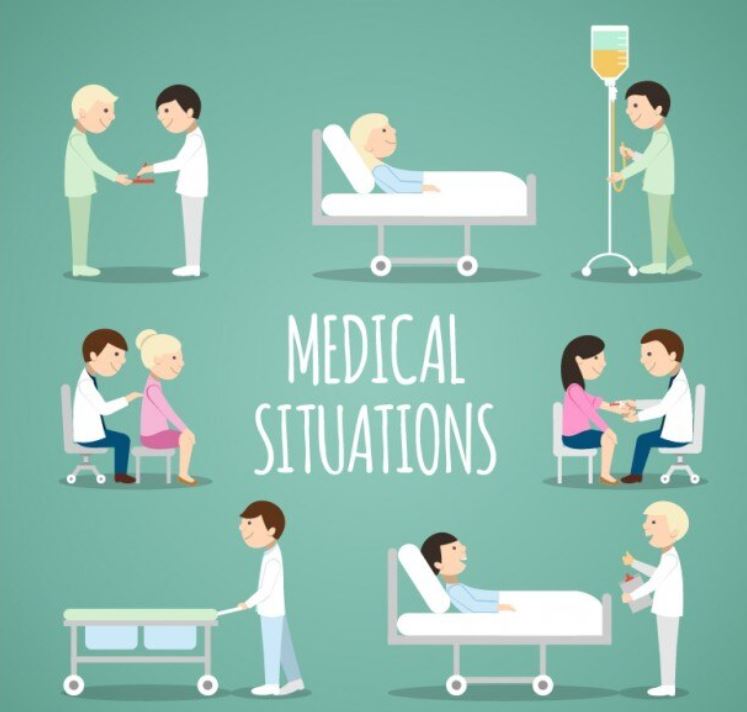People working in the healthcare sector have always dealt with long hours, high levels of stress, and the risk of burnout. This environment intensified during the pandemic, and workers who were already pressed had to cope with overwhelming realities.
The result is a healthcare employee retention crisis. That’s the main problem that healthcare owners and administrators are now trying to solve. Unfortunately, their efforts often miss the mark and the point. This crisis isn’t something that can be addressed with gift cards or complimentary lunches.
Keeping employees happy depends on making meaningful changes. Healthcare workers want safe work environments, fulfilling jobs, autonomy, and the support of the administration.
The specific issues that impact employee satisfaction may vary from one facility or area of practice to another. However, the key to keeping employees happy is almost always the same. Healthcare workers want to see that leadership is hearing them and responding with meaningful action.
If employee retention in healthcare is a concern at your facility, read on — we have provided some actionable strategies for solving that problem:
Increase Wages
How do you improve employee retention in healthcare when workers are asked to take on physical and emotional risks while working in a fatigued state much of the time? You raise wages.
This approach satisfies one of the demands that healthcare workers have expressed almost unanimously. Yes, benefits and other perks help, but none are as meaningful and necessary as better pay.
Simply put, there is no better way to express appreciation for someone’s work and professionalism than to pay them well. When this didn’t happen during and after the pandemic, healthcare workers often left for positions that did pay well or exited the field entirely.
Many nurses realized they would only be paid more if they resigned from their positions to become travel nurses or PRNs. Hospitals that refused to increase wages generally paid more as a result of increased labor churn costs.
Improve Your Benefits Packages
As you might expect, better benefits are also an effective way to improve employee satisfaction. If you haven’t updated the benefits you offer to reflect current realities, it may be time to do that. Healthcare workers particularly appreciate:
- Child and eldercare allowances
- Improved premium and copay ratios
- Ancillary benefits such as vision and dental care
- Life insurance
- Tuition assistance
Even when employees receive an adequate wage, they may feel unable to meet their own needs and those of their families without an adequate benefits package.
One benefit that healthcare workers appreciate is a fund for work-related necessities. These employees often go into their own pockets for personal protective equipment (PPE), uniforms, meals, and travel expenses. You will build significant goodwill if you offer your team reimbursement for these things.
Give More Unrestricted Time Off
Nobody can be reasonably expected to perform under the stressful conditions that healthcare workers experience without adequate time off to recover. Unfortunately, this need is something that many healthcare facilities fail to address. As a result, they struggle with healthcare employee retention.
Healthcare workers need more time off, and the standard five sick days and ten vacation days aren’t enough. That time off should come with as little gatekeeping as possible.
This need is why many companies are shifting to an unrestricted time off model that simply offers workers paid time off without requiring them to justify taking the time they are entitled to take.
Better time off benefits only help when you create a work culture that encourages a healthy approach to this subject. If workers are subtly encouraged to work past the point of burnout, leave vacation days unused, and endure excessively long hours, these benefits lose their impact.
Workers may feel as though taking time off could have a detrimental impact on their careers. Management that is concerned with keeping employees happy should actively encourage workers to use their time off benefits.

Listen to and Acknowledge Concerns
There’s nothing more frustrating to healthcare workers — or any employees — than to experience managers who don’t listen to employee concerns. Such behavior may include ignoring those concerns entirely, dismissing them, failing to act on them, or implementing solutions that reveal a lack of understanding.
The best way to improve employee satisfaction is to ensure you truly understand the concerns being expressed and then act on those concerns with a meaningful solution. As you do this, it’s important to be transparent. Let workers know what your plan is, gather feedback, and offer updates on the progress you are making.
For example, if your team is expressing concerns about a lack of support staff, you could:
- Acknowledge the problem exists and quantify how it impacts the team
- Create a plan to increase support staff over six months
- Share that plan with your employees
- Communicate weekly updates on both successes and failures
Offer Perks — But Not in Lieu of Benefits or Compensation
Over the past year or so, there have been several posts that have gone viral on Reddit and other platforms written by healthcare workers. The common theme in many of these posts is frustration over perks being offered while employers continually fail to address issues with meaningful solutions.
This exasperation isn’t to say that perks and shows of appreciation are all bad. They can contribute to better work culture and help workers feel appreciated. However, management teams should offer the following in addition to safe workplaces and adequate compensation:
- Notes of appreciation
- Certificates
- Pizza parties
- Gift cards
- Catered lunches
If not provided concurrently with best employer practices, these perks are more likely to breed resentment and serve as a reminder of management’s failure to acknowledge or address the needs of healthcare workers.
Decrease Staff-to-Patient Ratios
When healthcare workers have to care for too many patients, there are poor outcomes beyond lackluster healthcare employee retention. Patients suffer from inadequate care, operational costs increase, and administration must deal with these new issues’ wide-ranging impacts.
Everybody benefits when healthcare facilities adequately staff shifts so that providers have manageable caseloads. Patients get better care, and workers don’t burn out — or make as many potentially tragic errors. Hospital management spends less money on recruiting, hiring, and other costs.
Balanced loads are also an effective marketing tool as people are more likely to choose medical facilities that offer lower patient-provider ratios.
Prioritize Safety
The issue of safety has been revealed to be a significant concern among healthcare workers — and not just proper protection from communicable illnesses. These workers have been subject to threats, violence, and harassment from a variety of sources. When hospital workers aren’t safe, neither are their patients nor anyone else present.
The problem of employee retention in healthcare won’t be resolved until administrators and managers take worker safety seriously and take the following actions:
- Giving workers the safety equipment they need
- Offering adequate security for facilities
- Enforcing zero-tolerance policies for threats and violence
- Supporting workers who experience acts of violence
- Creating policies that prevent retaliatory action against whistleblowers
- Properly investigating and responding to incidents
- Using SMS and other technology to communicate dangerous conditions
In addition to taking these steps, leadership needs to make it clear that worker safety is a priority. Leaders need to create and implement policies and procedures that center on safety. Workers need adequate training, regular support, and a way to report incidents and hazards.
Facilities that aren’t already doing so need to begin collecting data on safety incidents to continue making future improvements.
Ensure Adequate Resources
During the pandemic, it was revealed that hospital staff members were often forced to wear inadequate PPE and deal with other significant shortages of critical equipment. That’s not only unsafe — it’s demoralizing. It serves as tangible evidence that the needs of workers and patients are not a priority.
Medical facilities that don’t ensure people have the resources they need are going to continue to lose staff to hospitals that do offer these things.
Why Is Healthcare Employee Retention Important?
Despite the fact that there is significant turnover in healthcare, there are also plenty of people entering the field. This inflow may lead people to question why retention is so important. When medical facilities can’t hold onto staff, these are just a few of the concerning outcomes:
- Costs of recruiting and onboarding increase
- Damage is done to the reputation of the facility
- The loss of knowledge and experience complicates operations
- The remaining employees lose engagement and decouple from the workplace
Fortunately, by implementing the suggestions here, you can avoid these issues. More importantly, you can maintain a strong team of workers who feel valued for the work they do.
As you read through these strategies for maintaining good employee retention, you may have noticed that good communication is a common thread. Contact Consumers can help you with this by providing tools and strategies for using SMS and email for employee communications.




